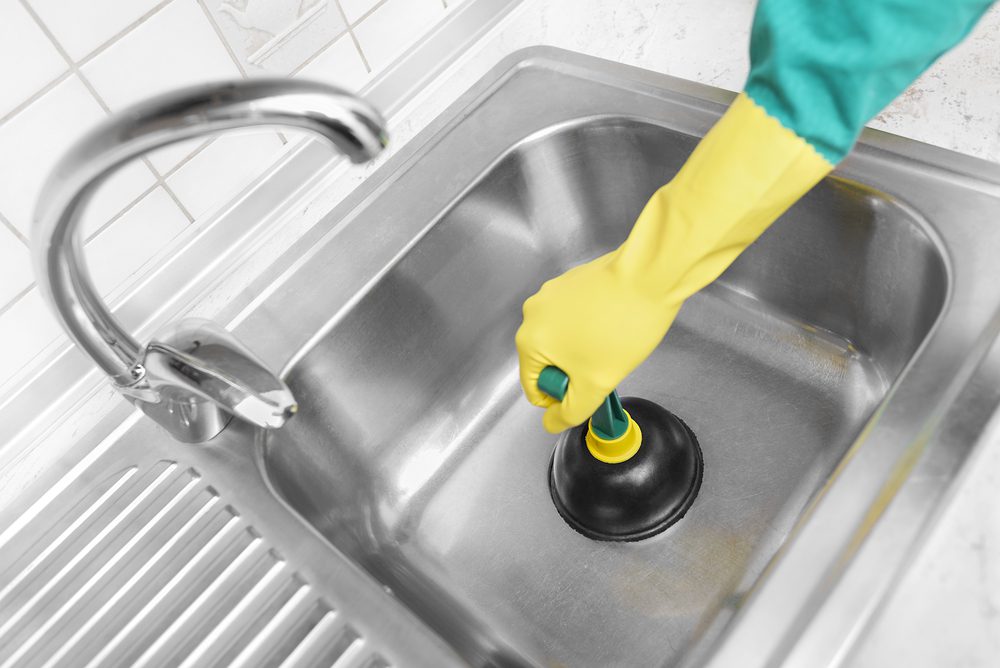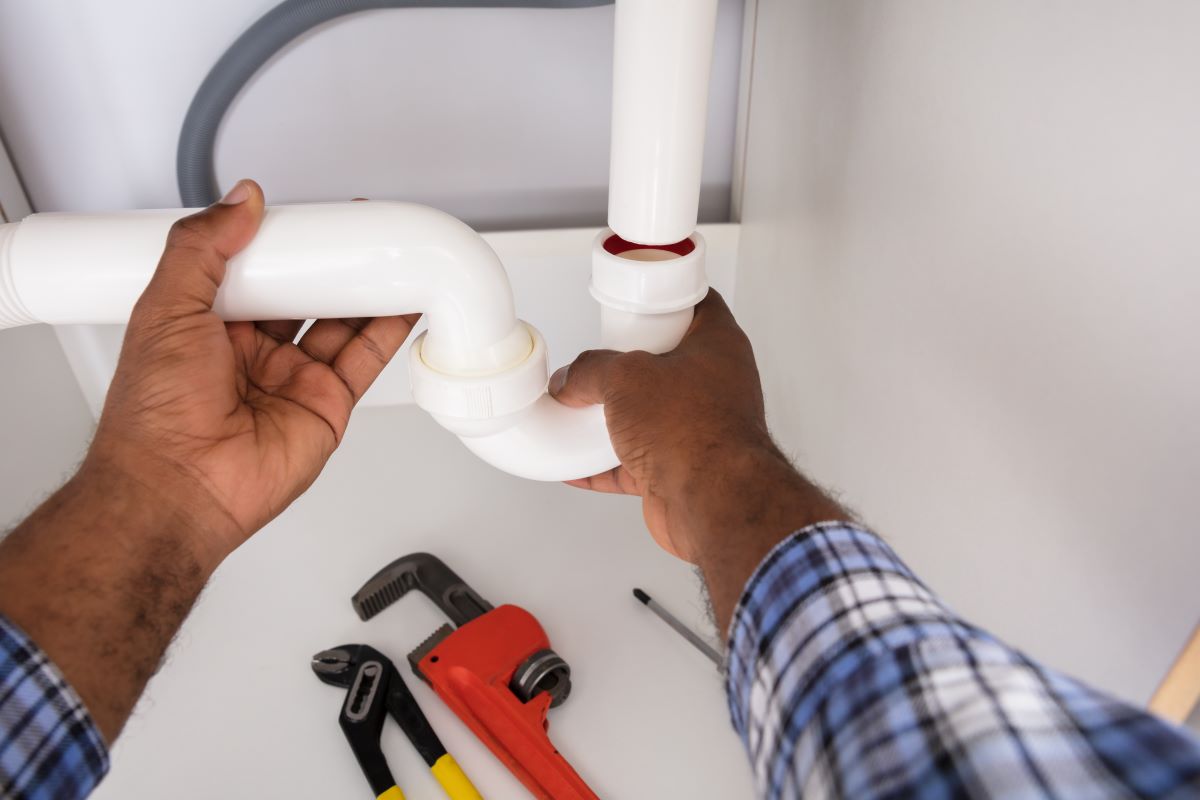Best Strategies For Repairing A Slow-Draining Sink
Best Strategies For Repairing A Slow-Draining Sink
Blog Article
What're your opinions about How to Fix a Slow Draining Sink?

Introduction
We've all been there: You're brushing your teeth or cleaning your hands, and you observe the water pooling in the sink. Rather than rapidly swirling away, it lingers, turning your once-refreshing morning regimen into a miniature swamp scene. A slow-draining sink isn't simply irritating; it's frequently a sign of larger plumbing problems lurking under the surface. The good news is that most slow-draining sinks can be fixed with a little know-how, a couple of standard tools, and some patience. Prepared to tackle this project head-on? Allow's roll up our sleeves and dive right in.
Understanding the Reasons For a Slow-Draining Sink
Prior to you start poking around in your pipelines, it assists to understand what might be causing the downturn. Recognizing the source makes it much easier to choose the best fix.
Tools and Materials You'll Need
The right tools make all the difference. Luckily, you won't need a fully stocked plumbing professional's van to get the job done.
Step-by-Step Overview to Dealing With a Slow-Draining Sink
Currently, let's get into the nitty-gritty. This detailed process will certainly lead you through basic strategies to restore your sink's drain.
Step 1: Eliminate and Clean the Stopper
Usually, the stopper (that tiny plug you push down to block water) is the very first wrongdoer. Remove it carefully and wipe any hair or gunk entraped around its base. Rinse it extensively before placing it back in position.
Step 2: Utilize a Plunger to Remove Particles
Got that plunger ready? Setting it over the drain and offer it a few firm pumps. The idea is to develop suction that can loosen any obstruction. If you see little bits of particles drifting up, you get on the best track.
Step 3: Attempt a Drainpipe Serpent or Cable Wall Mount
If the plunger does not suffice, it's time to highlight the drain snake. Gently feed it right into the drainpipe and twist as you go. You might really feel some resistance-- that's likely the obstruction. Keep turning and drawing until you eliminate the obstruction. If you don't have a drainpipe serpent, an aligned cord hanger can operate in a pinch.
Step 4: Apply a DIY Drainpipe Cleaner
An all-natural cleaner made from baking soda and vinegar can break down recurring grime. Pour half a mug of baking soft drink right into the drainpipe, complied with by half a mug of vinegar. Allow it fizz for around 15 minutes, after that flush with hot water. This chemical reaction commonly does marvels for minor obstructions.
Tip 5: Reconstruct and Check the Sink
Put every little thing back with each other and run the faucet. Does the water now swirl down the drain at a decent rate? If yes, give on your own a pat on the back. Otherwise, do not despair-- there are still a few even more tricks up your sleeve.
Necessary Tools for DIY Repair Works
A bettor is your go-to starting point. A tiny, sink-sized bettor creates suction that can remove minor blockages. For even more consistent blockages, a drainpipe serpent (sometimes called a plumbing technician's auger) functions wonders. A pair of gloves, a flashlight, and maybe a pair of safety goggles are likewise useful.
Suggested Cleaning Solutions
Moderate meal soap and hot water can help break down greasy accumulation. A mix of baking soft drink and vinegar is a reliable natural remedy, and enzymatic cleaners offer a more green approach. Maintain chemical drain cleaners as a last hope, as they can be severe on your pipes.
Common Culprits Behind Slow Water Drainage
So, what's clogging points up? Commonly, it's a combination of daily debris-- believe hair, soap scum, tooth paste deposit, and leftover food fragments. With time, these tiny bits collect and hold on to the pipe wall surfaces, slowly narrowing the flow and making it harder for water to pass through. In many cases, mineral deposits from difficult water can likewise include in the crud, creating the best tornado for stubborn obstructions.
When is it Time to Act?
If you discover the water draining slower than common, it's a good idea to interfere quicker rather than later on. Waiting too long can bring about complete clogs, unpleasant smells, or even pipe damages. If the water takes more than a couple of seconds to clean out after turning off the faucet, consider it a warning and get ready to place on your DIY hat.
Security First: Preventative Measures and Preparations
Before you launch into unclogging setting, think of safety and security. You're taking care of possibly dirty water and debris, so slip on a pair of handwear covers. If you're utilizing chemical cleaners, guarantee the space is well-ventilated and adhere to the instructions on the tag.
Safety Equipment and Workspace Setup
Lay down some old towels or rags around the sink area to catch sprinkles. Eliminate any kind of products that could enter your way, like soap dispensers or tooth brush holders. Make sure you have excellent lights-- grab a flashlight if required.
Alternative Techniques for Stubborn Clogs
Not all blockages are developed equal. If your sink still refuses to work together, consider these alternative services.
Sodium Bicarbonate and Vinegar Method
We currently discussed this, however it deserves keeping in mind again. This mild, green approach is much safer than chemical cleansers and typically quite effective.
Enzymatic Drain Cleaners
Enzyme-based cleansers use all-natural germs to absorb raw material. They're an excellent option if you're looking to avoid severe chemicals. Just keep in mind, they might take a bit longer to function their magic.
Chemical Drain Cleaners: Pros and Cons
Chemical cleaners can blow up through challenging obstructions quick, but they're not without drawbacks. They can create warmth and fumes, damage pipelines if used exceedingly, and posture environmental risks. Utilize them sparingly, and constantly adhere to the directions meticulously.
Safety Nets to Maintain Your Sink Flowing
Prevention is the most effective remedy. By taking on a couple of simple routines, you can maintain your sink from slowing down to begin with.
Normal Cleaning Up Behaviors
Wipe down the sink basin and fixture location routinely. Eliminate hair or food fragments prior to they have a chance to wash down the drain.
Avoiding Damaging Compounds Away
Reconsider before unloading coffee grounds, grease, or fibrous veggie scraps down the sink. These perpetrators hold on to pipeline wall surfaces, producing clogs in time.
Regular Upkeep Checks
Arrange a quick regular monthly assessment. Run warm water with the sink for a few mins, focusing on the flow. If it seems slow, act fast before it ends up being a full-on blockage.
When to Call a Professional Plumbing
Often, no matter how tough you attempt, that obstruct just will not budge. That's when it's time to generate the pros.
Signs That Indicate a Much More Serious Problem
If your sink drains pipes slowly regardless of multiple efforts, or if you see water supporting in other fixtures (like your shower or bathroom), you might have an extra serious pipes problem lurking much deeper in the system.
Stabilizing Do It Yourself Initiatives with Expert Assistance
While do it yourself can conserve you money and supply a feeling of achievement, there's no pity in calling a specialist. A specialist plumbing can evaluate your whole plumbing configuration, making certain there's no underlying damages or long-lasting problem that might cost you more down the road.
Contrasting Expenses and Long-Term Solutions
Prior to choosing, think about the big picture. A cheap, quick fix may fix the problem momentarily, however purchasing a more irreversible option might save you money and tension in the long run.
Evaluating the Expenses of Do It Yourself vs. Professional Solutions
Do it yourself fixes typically cost little bit greater than the rate of a plunger or a bottle of cooking soft drink. Expert solutions, on the other hand, featured a cost however may stop repeated problems and costly repair services later.
Buying Top Quality Fixtures and Upgrades
If your sink's layout contributes to frequent blockages, it could be worth updating to higher-quality fixtures or modifying the pipes design. Consider this a financial investment in your home's functionality and convenience.
Verdict
A slow-draining sink can feel like a small inflammation, but it's commonly an indication that your pipes needs a little tender loving care. By recognizing the source, utilizing the right devices and methods, and committing to basic safety nets, you can maintain your sink streaming easily. And when all else stops working, never ever think twice to call an expert-- your home's pipes is worth the investment in treatment and maintenance.
Three Common Ways to Fix a Slow Drain
Baking Soda Method
Boil a full pot of water. Measure out cup of baking soda and pour it down the drain. Then take cup of the magical cleansing substance known as white vinegar and drop that down there too. Allow the mixture to fizz in the drain for five minutes as the vinegar and baking soda combine. Now dump in that whole pot of boiling water. This combination of cleaning substances should clear out anything that is causing your sink to drain slowly. If it doesn t...
Zip-It
If the baking soda method doesn t clear out your drain, it may be because a significant amount of hair and/or other debris has collected there and you need to remove it. Purchase a Zip-It tool at any home improvement or hardware store and insert it into your drain. It will catch any collected hair or debris that s blocking the flow of water. Pull it out. If it s got a big clump of hair, etc. on the end, you ve probably got your culprit.
Drain Cleaner
If these methods don t work, there is the standard drain cleaner that you can also buy in a hardware store or even your local grocery store. It s better if you can use a household solution, but these drain cleaners often work in a pinch. They re very simple to use. You generally just dump them in your drain and wait. If even this method is not effective, it may be time to call the plumber.
https://www.mrrooter.com/oneida/about-us/blog/2017/july/three-common-ways-to-fix-a-slow-drain/

I came across that content about 7 Ways To Fix A Slow-Draining Sink Before You Call A Plumber while browsing on the search engines. Do you know about somebody else who is excited about the niche? Be sure share it. I appreciate reading our article about How to Fix a Slow Draining Sink.
View Report this page